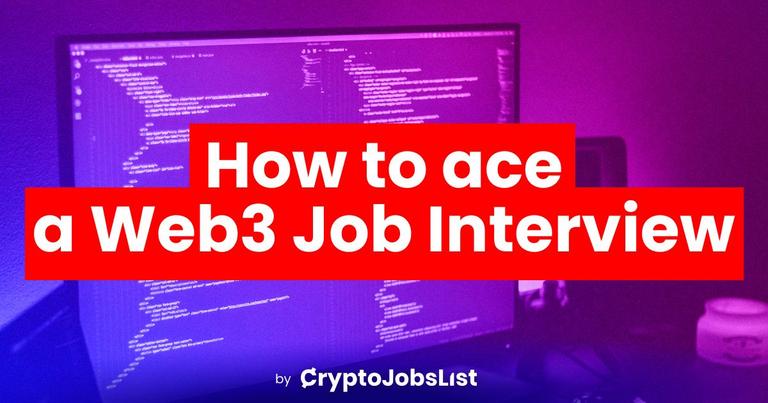
KEY TAKEAWAYS:
- Quiet quitting arises as employees reject overwork without extra pay.
- Zaid Khan's viral TikTok fuels debate on work-life balance.
- Quiet quitting emphasizes doing assigned work only, to prevent burnout.
- Critics argue quiet quitting reflects a lack of passion and harms teamwork.
- The crypto job market remains strong despite this trend.
- Companies are urged to support work-life balance and address employee workload.
If you are currently employed or have worked a 9-5 shift, you must be familiar with bosses asking you to overwork without paying an extra dime. Unfortunately, it is normal practice for companies to assign more work or demand overtime from employees. However, times have changed, and employees are not permitting this injustice anymore.
In the middle of 2022, a 24-year-old software engineer Zaid Khan from New York, posted a TikTok describing the concept of “quiet quitting.” Referring to this term, he told his followers not to go overboard and only do the work they are getting paid for. The TikTok video became instantly viral, opening up an eternal debate about work-life balance and employee well-being.
The introduction of quiet quitting has allowed people to reimagine their work priorities. Let’s talk in detail about this phenomenon and its effect on employees and employers.
What Is Quiet Quitting?
Quiet quitting is rejecting the idea that work life is more important than personal life or work should dominate a person’s life choices. This concept is against employees going above and beyond to do things that are not even part of their job description. The true idea behind quiet quitting is that it can help employees to avoid burnout and maintain a proper work-life balance.
However, some people are using this concept to invest less in their career roles and take on projects based on their interests. Quiet quitting does not mean actually quitting your job position, but it means you give the exact amount of effort required and collect the agreed-upon salary.
How Does Quiet Quitting Works?
Quiet quitters fulfill their primary job requirements, but they don’t take charge of extra responsibilities, such as working overtime. If a meeting is non-mandatory, the quiet quitter will simply refuse to attend it. In a nutshell, quiet quitting works by placing boundaries for yourself in a work environment and doing your best to enforce them.
Quiet Quitting – Employee’s Perspective

Employee burnout is a global concern. According to the Deloitte survey, 77% of employees have experienced burnout in their current job, while 91% have had to deal with unmanageable stress and frustration, which negatively impacted their work performance. Observing from this angle, quiet quitting is a good thing as it helps employees maintain healthy boundaries.
Maggie Perkins has shared her quiet quitting journey on different respectable platforms. She is a teacher who started following this concept in 2018 (before the viral TikTok). She said that there was no option of promotion or getting a salary raise in her job. So, she stopped doing overtime and giving more than her job requirements.
After Zaid Khan’s TikTok, Perkins also made a video about quiet quitting. In the video, she talks about doing your job only during contractual hours because otherwise, you can get burned out or taken advantage of.
Quiet Quitting – Employer’s Perspective
While employees are focusing on and promoting their choice to step back from the over-work culture, company executives and workplace experts are arguing and pointing out negative outcomes about this approach.
Arianna Huffington, a founder of the Huffington Post and CEO of Thrive, shared her views on quiet quitting in a LinkedIn Post. She stresses that quiet quitting is a step toward quitting your life. She says that instead of going through the motions, everyone should enjoy their work and reject the “hustle culture.”
How can Huffington promote work-life balance and talk against quiet quitting at the same time? Well, it’s a bit complicated. The concept of quiet quitting has evolved into a person not investing themselves emotionally to their job.
However, the main idea of quiet quitting is that you need to be passionate about your job to create productive outcomes. Moreover, being emotionally invested and taking pride in your work keeps you energized and motivated to excel in your career.
In addition, companies need a workforce willing to go the extra mile for them, as some urgent tasks require a little sacrifice from employees. Unfortunately, these requirements are hard to define fully in a formal job description or employee contract.
Many company leaders say that having a quiet quitter hurts the company more than an employee’s resignation letter. This is because it is possible to fill a place after an employee leaves, but the quiet quitter’s unwillingness to work on certain projects increases the burden on other colleagues who are open to taking extra responsibilities.
During an interview with CNBC, Kevin O’Leary, an investor and star of ABC’s “Shark Tank,” called quiet quitting a terrible idea. He said that dedicated employees help their team and company succeed in life.
Another work industry expert, Kelsey Wat (Career Coach), said that employees can use quiet quitting for a limited period to recover from burnout and set healthy boundaries. Wat doesn’t believe in following a “yes sir” mentality but promotes emotional investment in the working environment.
Is Quiet Quitting A Real Trend Affecting The Crypto Job Market?

The excitement to navigate the crypto landscape creates intrinsic motivation for teams to work beyond what is required of them.
Moreover, a quiet quitter can’t survive in the fast-paced environment of the crypto community for long, as the industry evolves more frequently than others, compelling crypto enthusiasts to stay invested in the trends and latest industry findings.
Despite this, the jobs in crypto will continue to increase. Since 2022, the crypto job market has been strengthening at a steady pace.
Crypto List Jobs Founder, Raman Shalupau, mentioned in his interview with Cointelegraph that the bear market will carry into 2023, but the demand for new talent in the industry will rise. This means there will be many full-time job opportunities available for crypto enthusiasts.
How Can Companies Battle Quiet Quitters?
As all industries are experiencing major loss due to the great resignation and quiet quitting culture, companies need to promote these actions:
Promote Work-Life Balance
Managers and business executives need to support their employees in achieving work-life balance. This includes encouraging them to leave on time, taking breaks, giving weekends off, and not sending them off-hours work-related emails. If an employee is working overtime, simply pay them extra for it.
Monitor Workload
Instead of piling work on employees, managers should check the employees’ schedules and assign work accordingly. This will prevent them from working overtime and experiencing fatigue and burnout.
Take Feedback
Managers should ask their employees how they feel about work and if they believe there is some room for improvement. To receive honest feedback, managers should conduct anonymous digital surveys. This way, employees can share their true feelings without worrying about personal negative outcomes.
Address Career Growth
According to a New Workhuman-Gallup Study, some employees disengage and cannot focus on career growth if they don’t feel appreciated or think there is no room for more growth. As a manager, talk to your employees to learn about their career goals. However, don’t pressurize them by saying the only way to get a promotion is by working overtime.
Frequently Asked Questions
Q1. What's quiet firing?
Quiet firing happens when employers subtly push an employee to resign by making their work life unpleasant, instead of directly firing them. It's like giving someone the cold shoulder until they decide to leave on their own.
Q2. Is quiet quitting illegal?
Nope, quiet quitting isn't illegal. It's more about employees choosing to do only what their job requires and not going above and beyond, which is within their rights.
Q3. Which generation quits the most?
Millennials tend to quit their jobs more frequently compared to other generations. They're often on the lookout for better opportunities that align more with their values and work-life balance desires.
Wrapping Up
Quiet quitting is only giving the bare minimum to your job and strictly sticking to your job description. As long as you are passionate about your job and address your entire responsibilities, it is perfectly fine to be a quiet quitter. Unfortunately, most people abuse this term and use it to give their lowest performance. As a result, industries are experiencing high losses and looking for more dedicated employees.
The effect of this trend on the crypto job market is not noticeable till now. But if the situation persists, new job opportunities may open up. If you are searching for a crypto field-related job, check out Crypto Jobs List. It has over 3000 job openings in crypto, web3, and blockchain, which can help you find the position to advance in your career.





